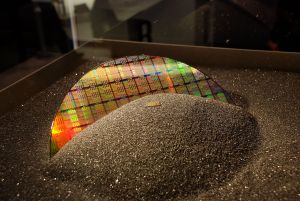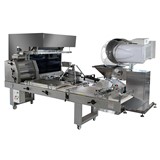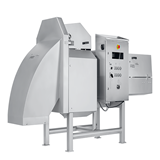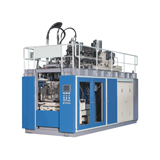Manufacturing operations have stopped at Shin-Etsu Chemical Co. Ltd.'s Shirakawa facility. MEMC Electronic Materials Inc. also stopped manufacturing at its Utsunomiya plant, iSuppli reported.
The firm said that memory - both flash memory and DRAM, the memory used in PCs - will be the hardest hit, followed by logic semiconductors used by various devices. Production accounting for about 70 percent of the world's printed-circuit board materials has also halted, but iSuppli said it believed that enough materials were already stockpiled so that it wouldn't make a difference.
Semiconductors, the chips that power the world's electronic devices, are carved out lithographically from large discs of silicon, called wafers. The chips are then encased in a ceramic or other package and mounted into PCs, phones, and other devices.
The earthquake put on hold 25 percent of the production needed to make the wafers themselves, iSuppli said. But fpr the want of a nail, there may be consequences to the world's electronic supply chain, with wafers, semiconductor chips, and then possibly the end products themselves stalled until production resumes.
For manufacturers, they also have the option of signing short-term contracts with foundries for chip production, or buying additional memory components on the shirt-term or "spot" market, at possibly higher prices.
"These companies supply not only domestic Japanese demand for wafers but also semiconductor manufacturers around the world," iSuppli said in a statement. "Because of this, the suspension of operations at these plants could have wide-ranging implications beyond the Japanese electronics industry. A 25 percent reduction in supply could have a major effect on worldwide semiconductor production."
PCB suppliers create the laminate material used in PC add-on cards and motherboards, as well as the boards that house the chips in phones and other devices.
About 40 percent of Renesas' assembly productions have been halted, iSuppli said, with Fujitsu's chip output is at 50 percent. Renesas describes itself as the leading manufacturer of microcontrollers, and is also a supplier of embedded DRAM.
Meanwhile, the status of the Fukushima Dai-ichi nuclear plant remains in flux, with workers racing to cool the reactor's cores with seawater, at the risk of corroding the cooling systems that failed in the aftermath of the earthquake, measured at a magnitude of 9.0.
Shin-Etsu's Shirakawa plant is responsible for 20 percent of global silicon semiconductor wafer supply, iSuppli said, and there has been reported damage to its production facilities and equipment. The company has said it was unclear how long it would take to repair the damages.
MEMC, meanwhile, said it evacuated employees and suspended operations at its Utsunomiya plant after the earthquake, iSuppli said, and delayed shipments. The Utsunomiya facility accounts for 5 percent of worldwide semiconductor wafer supply.
There has been some good news, however.
TrendForce, the parent company of the DRAMexchange spot market pricing service, said on Friday that although panic buying caused NAND flash spot market pricing to jump between 5 and 15 percent, the overall drop in NAND supply as a consequence of the earthquake should be less than 4 percent, and the price hikes will offset a traditionally slower sales period.
"DRAMeXchange expects NAND Flash spot price to sharply increase due to the uncertainty in supply, right after the earthquake," the company said. "Nevertheless, the market is rational after the uncertainties being clarified, the price will keep stable and mainly reflect the true supply and demand status in 2Q11.
As affected manufacturers and power & logistic infrastructures recover from the earthquake in 2Q11, the affected NAND Flash supply will also be improved. With the traditional recessing sales season in mid-2Q11, all these factors together will cause prices to go down."
AKM, which produced the electronic compass for the iPad 2, also confirmed to iSuppli that its facilities were not damaged, eliminating one of the tablets's critical components that the firm identified as at risk.









